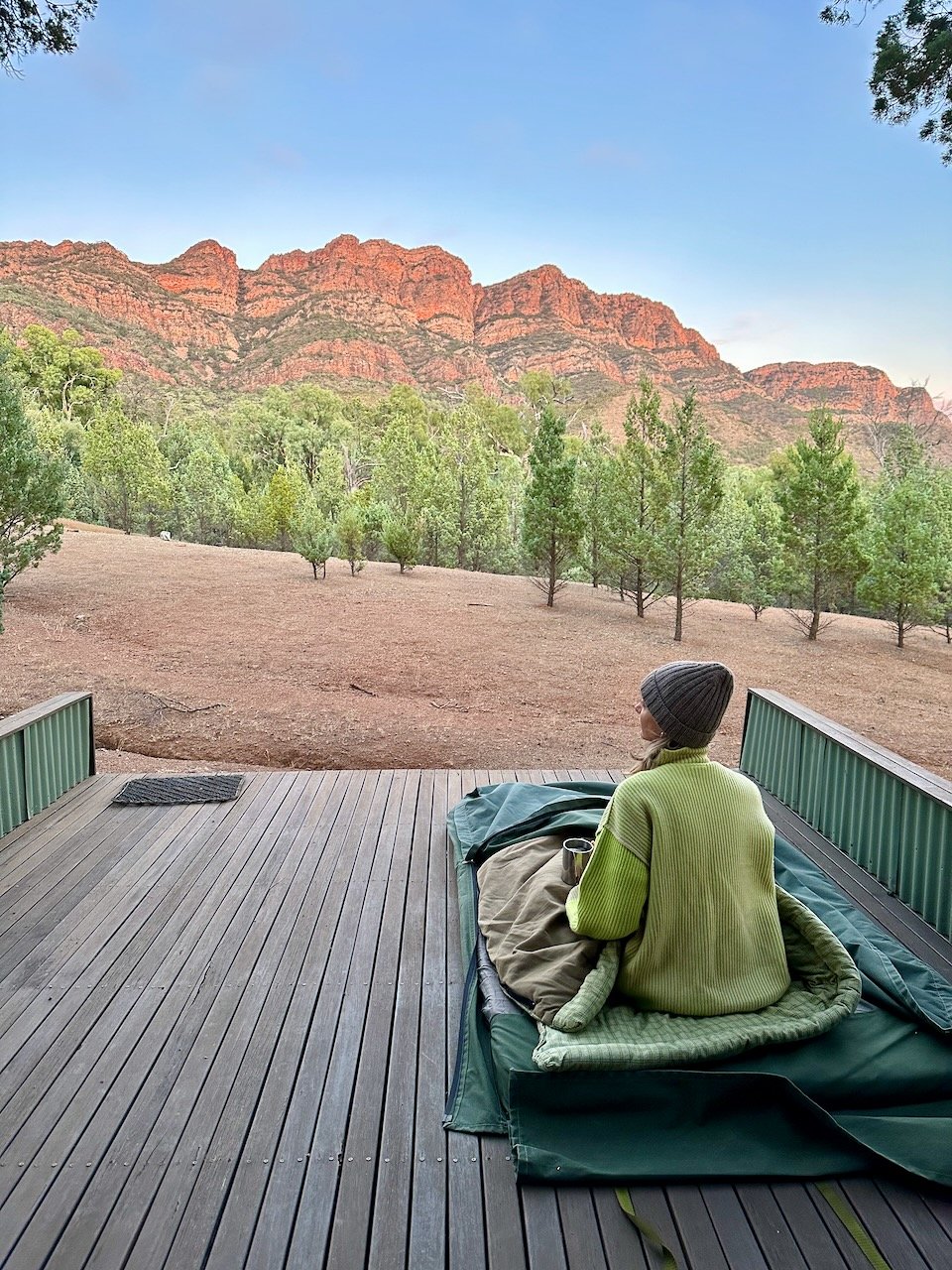NATURE-BASED TRIPS TO RECONNECT: STAY AWHILE MAGAZINE
NINA KARNIKOWSKI EXPLORES HOW MICRO-STAYS IMMERSED IN NATURE HELP HER RECALIBRATE, AND IN TURN, INSPIRE HER TO ACT MORE FOR OUR FRAGILE EARTH.The honeyed afternoon light sifts through the eucalypts and the kookaburras cackle their daily farewell as I soak in the outdoor tub. The longer I spend in here, the steam curling up into the cool air around me, the slower my thoughts become. I feel more mental space clearing for the living, breathing world to enter.
My husband and I have come to an off-grid cabin set high on a hill in the middle of the bush, to reconnect and reset before a big week. Realising how nervous I was about a minor operation coming up in two days’ time, we decided to do the one thing we now know works best to soothe a jangled body and brain - jump in the car and go bush.
Over the last three years, since the word ‘Covid’ first entered the global lexicon, lazy days spent camping and hiking in nature have been a balm for us. They have been a self-soothing technique we’ve used when life has started to feel soggy, and a signpost we’ve looked towards for guidance on how to better look after our ailing planet.
In the aftermath of the floods that hit the east coast of Australia in March 2022, which devastated our region and washed away our cars and office, I went on a forest bathing retreat in the Southern Highlands. Over three days, we were guided through a series of exercises to help recalibrate our fried nervous systems, including walking as slowly and intentionally as possible and simply noting what we saw, heard and smelled around us. It was a way of staying resolutely in the present moment - away from the anxiety of the past or present. And as I burrowed my nose into lavender bushes, stroked the fuzzy leaves of a lamb’s ear plant, and sniffed the sap and fresh cut grass on the crisp air, I felt my body instantly unwind.
The way I feel after these micro-trips in nature - reenergised, rejuvenated, relaxed - is backed up by science. Studies in Finland, Japan and the US have shown that being immersed in nature makes our brains healthier, increases our attention span and creativity, and lowers blood pressure, heart rate and stress levels. It has even been proven to improve the functioning of our immune system.
This deep, intentional connection to the natural environment is, of course, nothing new to Indigenous communities around the world - who have understood since time immemorial that the health of the natural world and the health of humans is inextricably linked. But this connection has been severed by our modern lifestyles, which see us spending far more time poking away at our computers and scrolling on our phones than we do outside, breathing the wild air.
Thankfully, nature-based trips not only help us rebuild this relationship, but inspire us to act more on behalf of nature. After the devastating bushfires in early 2020, my husband and I took a trip to the Warrumbungles National Park, home to Australia’s only Dark Sky Park and one of the best hiking trails in the country. Inspired by the natural beauty we saw there, the preciousness of which the bushfires had put into stark relief, I made significant changes in my life - including committing to not buying any new clothes for a year, and volunteering weekly at a local organic food farm.
We protect what we love. So our responsibility now, as human beings living on a fragile planet, is to get out into the natural world and fall in love with it, so we’ll be more inspired to do everything we can to help it flourish.
This story first appeared in print, below.



